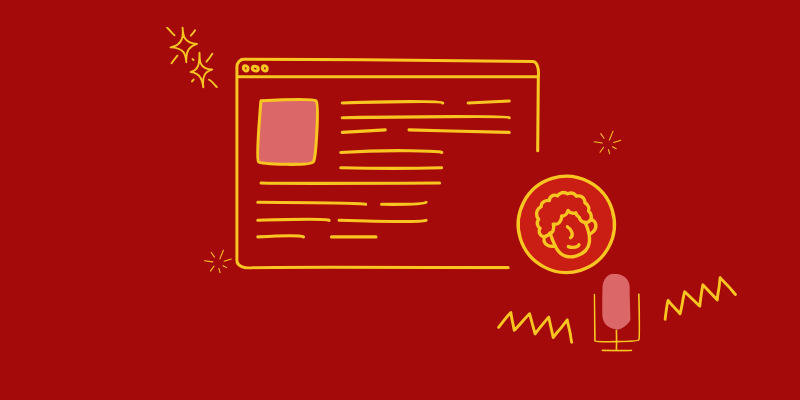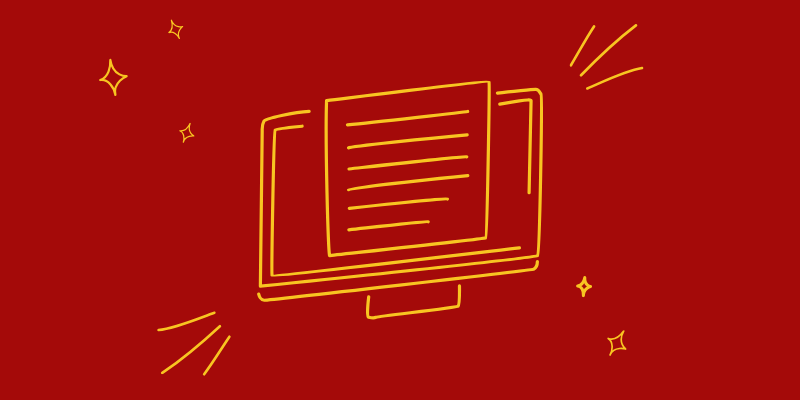

AI-Driven Onboarding: Revolutionize the Way You Welcome New Hires
As organizations strive to create seamless and impactful onboarding experiences, the integration of Artificial Intelligence (AI) emerges as a game-changer. Imagine a world where personalized onboarding journeys, automated processes, and intelligent insights converge to create an unparalleled employee experience.
In this article, we delve into the realm of AI-powered employee onboarding, exploring innovative strategies and practical tips to harness the full potential of this transformative technology. Get ready to unlock the secrets of leveraging AI to streamline onboarding, foster engagement, and unleash the full potential of your workforce. Welcome to a new era of employee onboarding powered by AI.
The Emergence of AI in Transforming Employee Onboarding
The emergence of AI has revolutionized employee onboarding by bringing personalization, automation, natural language processing, data-driven insights, and enhanced employee experiences to the process (You can find a Varity of relevant AI tools on Daily Baily AI).
AI enables organizations to create personalized onboarding journeys tailored to each new hire's needs, streamlines administrative tasks through automation, provides real-time support through chatbots and virtual assistants, analyzes data for continuous improvement, and creates a modern and engaging onboarding experience.
This transformation empowers organizations to set the stage for long-term employee success and strengthen talent retention strategies in a competitive job market.
AI and its applications in onboarding
AI refers to the simulation of human intelligence in machines that are programmed to perform tasks intelligently. In the context of employee onboarding, AI finds various applications to enhance the process.
AI-powered systems can automate administrative tasks, generate personalized onboarding journeys, provide real-time support through chatbots, analyze data for insights, and improve the overall efficiency and effectiveness of onboarding programs.
By leveraging AI, organizations can streamline and optimize their onboarding processes, leading to improved outcomes for both new hires and the company.
Benefits of leveraging AI in the onboarding process:
- Leveraging AI in the onboarding process offers several benefits for organizations. Personalized onboarding journeys: AI enables the creation of tailored onboarding experiences based on the unique needs and preferences of each new hire, fostering a sense of belonging and engagement.
- Automation of routine tasks: AI automates administrative tasks, freeing up HR and onboarding teams to focus on strategic activities, improving efficiency and productivity.
- Real-time support: AI-powered chatbots and virtual assistants provide instant support to new hires, guiding them through the onboarding process and ensuring a seamless experience.
- Data-driven insights and analytics: AI enables organizations to measure and evaluate the effectiveness of onboarding programs, identify areas for improvement, and optimize the onboarding experience for better outcomes.
- Enhanced efficiency and productivity: AI streamlines processes, reduces errors, and allows teams to focus on value-added activities, leading to improved efficiency and productivity.
- Personalization and engagement: AI-driven personalization creates a sense of belonging and alignment from day one, increasing engagement and improving the onboarding experience.
- Data-driven decision-making: AI enables organizations to gather and analyze data, making data-driven decisions to optimize the onboarding process and improve employee retention.
Implementing AI in Employee Onboarding
Selecting the right AI tools and technologies
When implementing AI in employee onboarding, it is crucial to carefully select the appropriate AI tools and technologies that align with the organization's needs and goals. This involves assessing the specific functionalities required, evaluating vendors and solutions in the market, and considering factors such as scalability, compatibility, and ease of integration with existing systems.
Additionally, organizations should consider the level of customization and configurability offered by the AI tools to ensure they can adapt to the unique onboarding processes and workflows.
Integration and data management considerations
Integrating AI into the onboarding process requires proper planning and consideration of data management. Organizations need to assess how AI systems will integrate with existing HR systems, such as applicant tracking systems (ATS), human resource information systems (HRIS), or learning management systems (LMS).
Smooth integration ensures seamless data flow between systems, avoids duplication or loss of information, and enables a holistic view of employee data throughout the onboarding journey.
Step-by-Step Guide for Using AI to Streamline Employee Onboarding
1. Preparing for AI Onboarding: Before implementing AI in the onboarding process, organizations need to identify the specific goals and objectives they want to achieve. This includes understanding the pain points of the current onboarding process and how AI can address them.
2. Selecting the Right AI Solutions: There are various AI-powered tools available for employee onboarding. It is crucial to evaluate and choose the right solution that aligns with the organization's requirements. Some popular AI applications for onboarding include chatbots, virtual assistants, and predictive analytics tools.
3. Automating Administrative Tasks: AI technology can automate time-consuming administrative tasks such as document verification, data entry, and form filling. This frees up HR professionals' time, allowing them to focus on building meaningful relationships and providing personalized support to new hires.
4. Implementing Chatbots for Onboarding Assistance: Chatbots can answer frequently asked questions, guide new hires through the onboarding process, and provide real-time support. They can also collect feedback from new employees, helping organizations identify areas of improvement in their onboarding programs.
5. Utilizing Predictive Analytics for Personalized Onboarding: AI-powered predictive analytics tools can analyze data from various sources to predict the needs and preferences of new hires. This enables organizations to tailor the onboarding experience to each individual, increasing engagement and satisfaction.
Best Practices for AI-Driven Onboarding
Define clear objectives
Clearly define the objectives and desired outcomes of implementing AI-driven onboarding in your organization. This includes identifying the specific challenges you aim to address, such as reducing time-to-productivity, improving employee engagement, or enhancing the onboarding experience.
Align AI with your onboarding process
Ensure that the AI technologies and tools you choose align with your existing onboarding process. Consider how AI can enhance and streamline different stages of onboarding, such as pre-boarding, orientation, training, and ongoing support. By integrating AI seamlessly into your existing process, you can create a cohesive and effective onboarding experience.
Personalize the onboarding journey
Leverage AI to create personalized onboarding journeys for each new hire. Use AI algorithms and machine learning to understand individual preferences, learning styles, and skill gaps, and deliver tailored content and resources. Personalization fosters engagement, accelerates learning, and increases new hire satisfaction.
Provide real-time support
Implement AI-powered chatbots or virtual assistants to provide real-time support to new hires throughout the onboarding process. These AI-driven tools can answer common questions, offer guidance, and provide immediate assistance. By offering instant support, you enhance the efficiency and effectiveness of onboarding while reducing the need for manual intervention.
Continuously analyze and optimize
Leverage AI to gather data and insights on the effectiveness of your onboarding program. Analyze metrics such as time-to-productivity, employee satisfaction, and retention rates to identify areas for improvement. Use these insights to make data-driven decisions and continuously optimize your onboarding process for better outcomes.
Ensure data privacy and security
When implementing AI-driven onboarding, prioritize data privacy and security. Ensure compliance with relevant data protection regulations and establish robust data management practices. Safeguard sensitive employee information and communicate transparently about data usage and security measures to build trust and confidence among employees.
Provide training and support
Offer comprehensive training and support to HR teams and managers involved in the AI-driven onboarding process. Ensure they are well-versed in using AI tools effectively, interpreting data insights, and providing necessary guidance to new hires. Ongoing training and support empower your teams to make the most of AI technology and drive successful onboarding experiences.
By following these best practices, organizations can effectively harness the power of AI-driven onboarding, leading to improved employee engagement, accelerated time-to-productivity, and enhanced overall onboarding experiences.
Guidde: An Essential AI Tool for Employee Onboarding
To create engaging how-to video guides for your employee onboarding process, Guidde is the perfect tool. With Guidde's web browser extension, all you need to do is press ‘record’ to capture your screen while you carry out a task to create a professional screen recording video. From here, it only takes a few minutes to add a voiceover and text to the video, edit the steps, and more.
The resulting Guidde video can be exported for your employee onboarding as a video, GIF or a series of screenshots, which are easily shared by copying the link from the Guidde system in just a few clicks. They can then be added to your Knowledge Base or employee training playlists.
To use your videos, GIFs or screenshots from Guidde, you can copy directly from the Guidde system by clicking Share > Copy Link, or:
- Click Share on the video
- Click Smart Copy
- The HTML will be copied to your clipboard for you to paste into the appropriate area.
Final Thoughts
Implementing AI in employee onboarding has the potential to revolutionize the way organizations welcome and integrate new hires. By leveraging AI technologies and tools, organizations can create personalized onboarding journeys, automate routine tasks, provide real-time support, and gather valuable data-driven insights. The benefits of AI-driven onboarding are vast, including increased efficiency, improved employee engagement, and enhanced decision-making.







